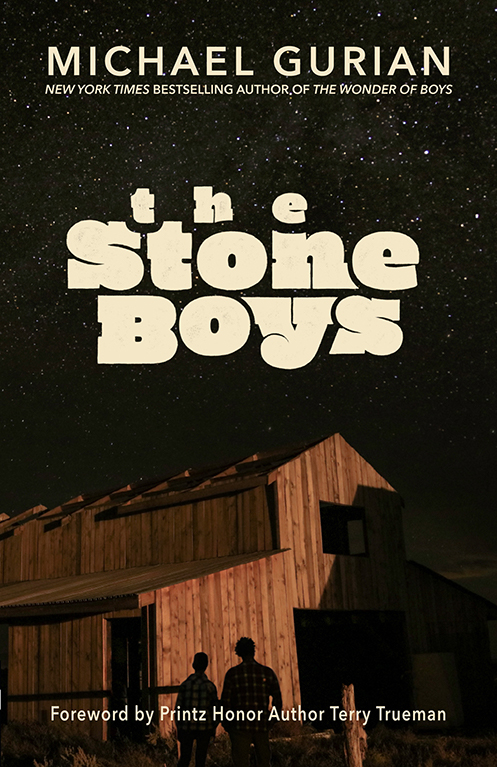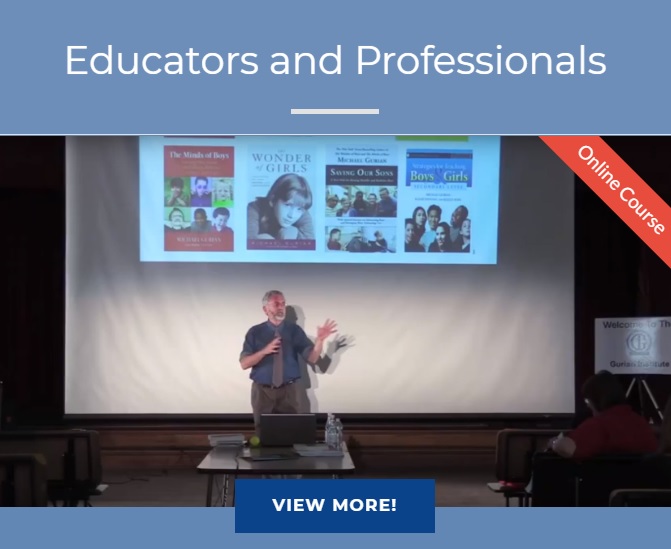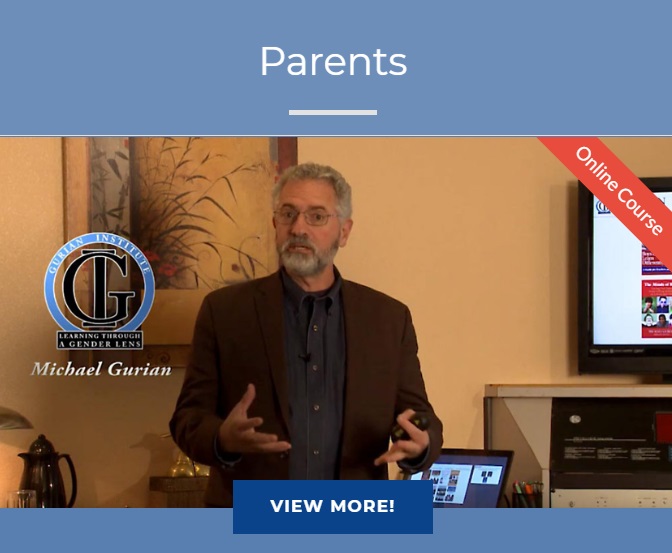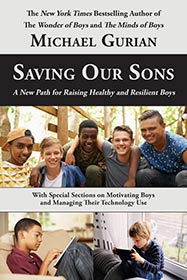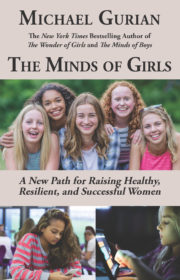(Michael Gurian) convincingly illustrates…the peculiar pain and potential loneliness of being a boy in America today. —Time Magazine
The Gurian Institute is proud to announce the publication of The Stone Boys by Michael Gurian, New York Times bestselling author of The Wonder of Boys. We hope you will use it in your classrooms and homes as a way of engaging both boys and girls in conversations about trauma, bullying, and American boyhood. Gurian wrote the book to be read by adults and teens alike, with special emphasis on making sure boys would read the book–it is an empathic take on teen boy’s lives, set in 1975, with a lot of action.
The story: Ben Brickman, 17, and Dave McConnell, 16, become friends and gradually learn of each other’s hidden sexual abuse trauma. The boys decide to confront their demons by abducting a dangerous high school bully. But their plan for revenge takes a dark and disturbing turn, leaving the boys to grapple with good and evil and what it means to be a man.
Drawn in part from the Gurian’s personal experience as a sexual abuse survivor, The Stone Boys is both a dramatic page-turner and a profoundly emotional read—not to mention timely as our society contends with #MeToo, bullying and trauma, and a crisis of childhood sexual abuse. In one scene, Ben says, “You know why we can’t tell other people about these things? Because people who haven’t been there, they can’t understand.” Courageous and the first of its kind, The Stone Boys is intended to help readers understand. This work of fiction contains sensitive material. Parental guidance recommended.
Michael Gurian is widely considered one of America’s leading advocates for boys. He has briefed members of the 114th Congress on the boy crisis in America, provided information on boys’ educational needs to two White Houses, and written thirty-two books, including two previous novels and the bestselling The Wonder of Boys, The Minds of Boys and Saving Our Sons. The Stone Boys, appropriate for high school and adult readers, is his first young adult novel. Find out more about the author at https://www.michaelgurian.com/.
Words of Praise for The Stone Boys:
“The Stone Boys is a uniquely powerful novel by one of America’s leading experts on boys. Protagonist Ben Brickman’s journey to deal with his deepest emotions is relentlessly and authentically written…unforgettable.” – Terry Trueman, Printz Honor Author of Stuck in Neutral.
“The Stone Boys makes it safe for boys to deal with experiences and topics not usually verbalized. This book will be part of their shaping journey to becoming good men.” – Gregory Jantz, Ph.D., founder of The Center, A Place of Hope and author of Healing the Scars of Emotional Abuse.
“(In The Stone Boys), Gurian incorporates autobiographical elements into a story built not around easy answers but anguished inner arguments . . . of use for discussing the cycle of abuse.” –Kirkus Reviews
“The Stone Boys dives deep into the trauma of bullying and abuse and comes out just as our culture is taking the lid off the pain too many have buried for too long. Compelling and profound.” –Pastor Tim Wright, Community of Grace Lutheran Church
Schools and Teachers can bulk order the novel for their students and their classrooms directly from its publisher, Latah Books (www.latahbooks.com), or by contacting gail@gurianinstitute.com.
Teens and Parents can order the book on www.latahbooks.com, amazon.com, and through their normal booksellers.
Counselors, Clergy, and Other Professionals can also order the novel via these online and brick and mortar stores or in bulk through www.gurianinstitute.com or www.latahbooks.com.
News and Feature Media can acquire the book through these channels, as well. The Stone Boys provides a template for discussing a number of topics and news hooks in Dr. Gurian’s areas of expertise.
Areas of Expertise:
The Stone Boys is being published at a time of cultural change regarding boys and gender issues. As a seasoned interviewee and one of the nation’s leading expert on boyhood, Michael Gurian can provide insights in any of the following areas:
*#MeToo, especially the boy’s part of the movement—the expression by boys and men of sexual assault and victimization.
*The book depicts what culture now calls “toxic masculinity” with an authentic lens into both problem and solution.
*Sex abuse and trafficking. Set in 1975, The Stone Boys does not shy away from showing boys struggling to remember and forget their childhood sexual abuse and, in one boy’s case, trafficking.
*Misandry and androphobia–hatred and fear of men have penetrated the culture. This novel, as well as Gurian’s other nonfiction works (e.g. The Wonder of Boys and Saving Our Sons) explore these topics with depth.
In Education and Psychology:
*The Stone Boys is a young adult/adult crossover novel, with readability for all audiences as a psychological thriller, and with accessible, sophisticated reading for secondary school students.
*Bullying and Anti-Bullying campaigns. For schools or communities dedicated to bullying prevention, The Stone Boys provides a template for what boy-bullying, especially of sensitive boys, is and how to respond. As such, the book can be used in class or school-wide to stimulate conversation among students, faculty, and parents.
*The Stone Boys provides a template for discussion of the meaning of “trauma-informed” in teaching, counseling, and parenting. Gurian provides training to schools and psychology professionals in this area and can be used as an expert for stories that involve assessment of and insight into childhood trauma.
*In areas of parenting and similar magazines, The Stone Boys provides discussion points and story by which to help boys access feelings and empathy, which has become a national concern. If parents and adolescent boys read the book in tandem, their discussions about male development will be enlivened as the book is also about boys expressing hidden feelings to moms, dads, and mentors.
The Gurian Institute is proud to be involved in the publication of its founder’s first young adult novel. We hope you will get the book for your teens, families, schools, and communities. Please reach out to us as you need us at info@gurianinstitute.com.
Here is an excerpt from the book when the two main characters meet in the summer of 1975.
I climbed down the other side of the boulder, dropped to the ground and shook dirt out of my sandals. Avoiding a prickly holly bush, I came to another dense stand of trees and bushes and discovered a dome-like fort pushed against a low rock wall. It was shaped like an igloo or even a sweat lodge, like the one I had seen out on the Res.
Had Dave built this, I wondered?
Covering the whole igloo structure—except for the door which was just a flap of gray army tarpaulin—were old blankets, quilts, tarps, and tree branches. If Dave had built this, he did a good job with what he had around him in the junk piles and forest.
I walked up to the flap-door and dropped down to my knees. Inside the fort I saw Dave McConnell sitting lotus style on cardboard flooring, his tongue tip jutting out the left side of his lips as he wrote in a thick blue spiral notebook.
He saw my shadow immediately and clamped his book shut.
“Sorry, man,” I apologized.
“Jesus Christ!” His cheeks flushed so red I could see them change color even with the cave-like darkness.
I stepped back, continuing to mutter, “Sorry, sorry.”
As he crawled toward the doorway, I saw the blue spiral notebook on the dirt floor, a yellow paperback novel, a flashlight, a plastic bag, pieces of cardboard stacked next to the door, and a silver-and-black transistor radio.
“When did you build this . . . fort?” I asked. “It’s cool.”
“You scared me, man,” he said.
Without answering my question, he stood up, brushed his butt with both hands, and took a position in front of the door like a sentinel. He stood an inch or two shorter than me and wore a white t-shirt under his plaid shirt.
“Sorry, man,” I apologized once again. “You’re Dave McConnell, though, right?”
He nodded and swallowed hard, his Adam’s apple bobbing under the almost translucent white skin of his throat.
“I’m Ben Brickman,” I said, putting out my hand. His handshake, clammy, came and went rapidly. “I got here a week ago, from New York.”
“You’re Harvey Brickman’s son,” he confirmed.
“Your Mom’s originally from Queens, right?” I asked, trying to make conversation, both of us swaying on our feet.
“Yeah. Astoria. Her mom’s side is Jewish. I’ve been to Queens a couple times.”
He looked like a one-hundred-pound-weakling kid, but his blue eyes with flecks of gold appeared very adult. As pale as he was, he didn’t look Jewish at all and he seemed even more shy and nervous than Harvey had described.
“What grade you in?” I asked.
“I’ll be a junior,” he said, lifting his right hand to bite at his thumb.
“You sixteen or seventeen?”
He shrugged. “Sixteen. Just turned. You’re seventeen.”
I nodded and cocked my head to the fort. “You writing in there? A journal?”
This question made him frown, even look angry. His thin lips closed tight, his hands went back down at his sides. Three lines formed across his forehead as his eyelids closed slightly over his blue eyes.
“Kind of, yeah.”
It wasn’t anger, though, I decided quickly—this was just how he concentrated.
“I keep a journal, too, sometimes,” I nodded. “What’re you reading in there?”
“Light in August by William Faulkner,” he said.
“Seriously? That’s college level stuff.”
He didn’t respond and I imagined barging past him and checking his fort and journal out, but his stiff posture said, “I am not inviting you into my fort.”
“What else you read?” I asked. “You like Hemingway?”
“Sure. I read everything.”
His voice squeaked loudly. The puberty squeak shut him up with a new frown as his cheeks flushed again.
“Cool,” I nodded, pretending not to notice. I had been through change-of-voice already, and it was no fun.
“You read any plays?”
He shook his head.
I showed off a bit. “Beckett, Leroi Jones, Pinter, Albee, lots of plays are minimalist right now, different from novels like Faulkner.”
“Your dad’s working on a theater out at the Res,” Dave said. “I’ve never been out there.”
“I’m heading out there again tomorrow. You can come if you want. In fact, your fort looks kind of like a sweat lodge.”
“Thanks,” he said, noncommittal.
“I did a sweat lodge ceremony with my dad and our friend Eagleclaw on Sunday. It was cool.”
“I’ve never done anything like that,” he responded, not proud of it or complaining, just standing there.
“You guys smoke pot out here in the sticks?”
“Sure,” he said, but he did not look like a guy who would do that.
We both went silent for a few awkward moments as a commercial for Durango Auto Mart came on the radio. This town in the mountains only had 10,000 residents in it, so this “Auto Mart” was probably one of its biggest car retailers. The commercial wanted people to buy Dodge trucks in a very loud, fake-booming voice.
“Anyway, maybe we’ll hang out,” I said. “Your house a good place to hang out?”
He shook his head. “My mom’s home all the time.”
“Harvey’s gonna be gone a lot,” I shrugged. “I won’t be at the Res every day. You can come over. I’ve got the basement set up, and Harvey’s cool about it.”
“Okay,” he nodded. “Sure, thanks.”
We stood silently for another few awkward seconds, enough time for the commercial to end and The Who’s 5:15 to start.
“Anyway, Dave, be cool, okay?” I said. “I’m around.”
He seemed to want me to leave, yet I couldn’t shake some weird feeling about him, like he also wanted me to stay. My stomach was feeling queasy again, and I decided to respect his turf. I turned and began climbing back up the boulder as Roger Daltrey sang, “Out of my brain on the train.”
Back on the other side, I looked up at the top of the boulder and debris piles and thought how weird I was to be scared of some geeky artistic kid. What a wuss I was. I panted loudly a few times while noting two good landmarks to memorize – six branches of a juniper tree pointing upward and a gap of dirt and sand at the trail’s edge. With these landmarks in my head, I could come back to this fort sometime, just to check it out more.
I wanted to see what he wrote in that blue spiral notebook.
Dave’s face had showed such fear when I caught him.



